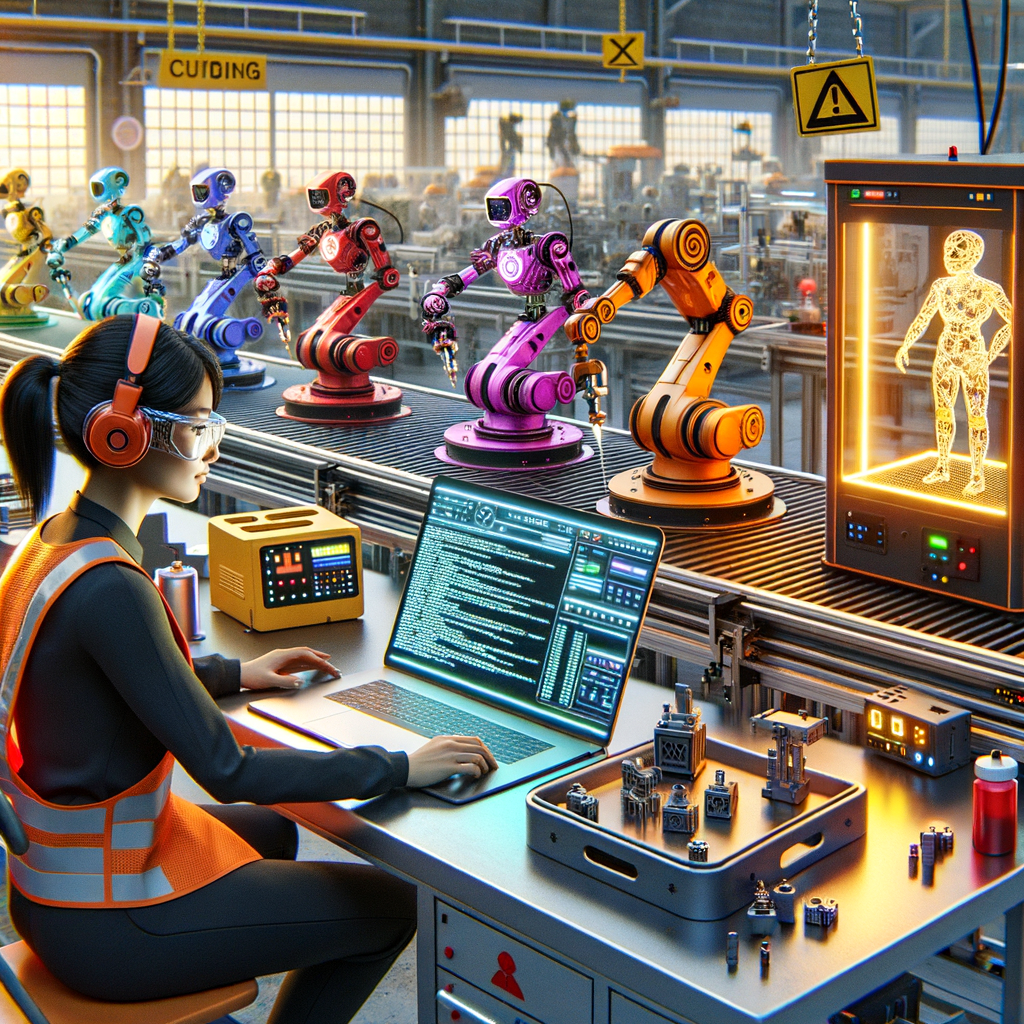“The Manufacturing Industry Transformed: AI’s Revolutionary Impact”
In the dynamic realm of manufacturing, Artificial Intelligence (AI) acts as a catalyst, swiftly revolutionizing the industry with its amalgamation of speed, precision, and adaptability. With its multifaceted capabilities, AI is reshaping manufacturing processes, from minimizing downtime to forecasting market trends. Let’s delve into the myriad ways in which AI is elevating performance on the factory floor, embodying excellence in every aspect.

In the vibrant landscape of manufacturing, Artificial Intelligence (AI) emerges as a transformative force, akin to a whirlwind romance, infusing the industry with unparalleled speed, precision, and adaptability. From mitigating downtime to anticipating market shifts, AI’s impact on manufacturing is expansive and diverse. Let’s explore the myriad ways AI excellence manifests on the factory floor:
- Smart Predictive Maintenance: Traditionally, machinery breakdowns caused unexpected halts and costly repairs. AI-driven predictive maintenance, employing machine learning algorithms and sensor data, preemptively identifies potential issues, enabling timely interventions and ensuring uninterrupted operations.
- Enhanced Quality Control: Imperative for delivering flawless products, quality control traditionally relied on human inspection, susceptible to errors. AI-powered intelligent vision systems now meticulously monitor and analyze products, detecting even minute defects with remarkable precision, ensuring impeccable quality standards.
- Autonomous Inventory Management: Managing inventory complexities is simplified with AI autonomously tracking and managing stock levels using advanced algorithms. This optimizes warehouse space, minimizes waste, and facilitates efficient resource allocation.
- Robotics and Cobots: AI enhances the capabilities of robots, enabling them to handle diverse tasks with agility and precision. Collaborative robots (cobots) complement human workers, enhancing productivity and safety by sharing workload and undertaking strenuous tasks.
- Customization at Scale: Leveraging data insights, AI enables mass customization, catering to individual preferences on a large scale. This not only satisfies customer demands but also fosters competitive advantages for manufacturers.
- Energy Optimization: AI analyzes energy consumption patterns and optimizes operations for efficiency, leading to reduced costs and environmental impact, aligning with sustainability goals.
- Supply Chain Efficiency: AI augments supply chain operations by predicting delays, optimizing routes, and autonomously managing logistics, ensuring timely deliveries and customer satisfaction.
- Training and Safety: AI-powered training programs offer interactive learning experiences, facilitating skill acquisition. Additionally, AI monitors workplace safety, detecting hazards in real-time and guiding workers to safety.
The brilliance of AI in manufacturing lies not only in its technological prowess but also in its adaptability. Manufacturers can tailor AI applications to address their unique challenges, fostering innovation and efficiency. The fusion of human creativity with AI’s analytical capabilities heralds a future where manufacturing is lean, sustainable, and responsive to evolving demands.
As manufacturing advances, propelled by AI, it transcends mere automation, embracing intelligence and innovation. This synergy between human ingenuity and AI heralds a new era of manufacturing excellence, where efficiency, sustainability, and customer-centricity converge to redefine industry standards.


